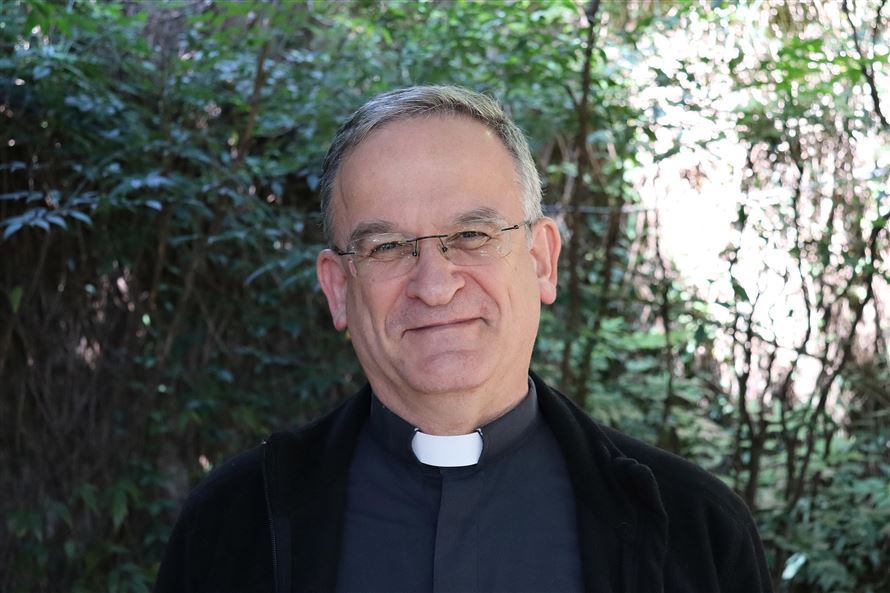David Neuhaus, S.J.: A Voice Against Genocide
Joaquim Magalhães de Castro
In an increasingly mercenary, insensitive and selfish world, fortunately there are courageous voices that are not afraid of the weight of words. This is the case of the Israeli Jesuit, David Neuhaus, born in South Africa, son of German-Jewish parents who fled Germany in the 1930s.
“After six months of bombings, it is shameful that no one has been able to hold those who instigated this war accountable,” observes the priest, a scholar of the Holy Scriptures, in an interview given to Gianni Valente, reporter for Fides Agency.
Father David Neuhaus, former Patriarchal Vicar for Hebrew-speaking Catholics and for Pastoral Care among Migrants, thus gives testimony to the faith of the Christians of Gaza, who, in the midst of so much death and despair, had the opportunity to proclaim the resurrected Christ on Easter Sunday. Easter was sad and desolate in Gaza, as you can imagine. Much suffering; death and destruction everywhere. However, among the most powerful images are those of Christians from the Holy Family Roman Catholic parish in Gaza City, who, with “unwavering resilience and radiant faith” celebrated the Holy Week liturgies. It took enormous courage to be there, surrounded by the ruins of almost half a year of bombings, incessant military attacks that caused so much death, destruction and human despair.
Father Neuman recalls that the Holy Father’s voice has been “coherent and uncompromising since the beginning of this round of conflict”. Francis repeatedly exhorted: “War is a defeat for everyone.” More recently, in his Easter message, he added: “War is always absurd.” Since the time of Pope John Paul II, questions have been raised about whether there can be a “just war” in times of weapons of mass destruction… It is clear that countries involved in wars and supporting them do not appreciate this message that puts life and human rights above political ideologies and supposed national interests. Pope Francis also did not fail to emphasize that the violence led mainly to the murder of non-combatants, especially women and children. Those who want the Pope to take sides are frustrated by his refusal to do so.
Unfortunately, the current conflict is just the most recent phase of a decades-long war. Much of Jewish nationalism still feeds on the horrors of the Shoah. There is still deep anger, sadness and a sense of betrayal that the Jews were left to fend for themselves in those dark years. Much of Palestinian nationalism feeds on the horrors of the Nakba, the Palestinian catastrophe of 1948, and the feeling that they have been betrayed and are expected to disappear and give way to the Jews. “There are now, in Israel and Palestine, seven million Jews and seven million Palestinians. The time has come for each one to accept the other, to realize that the other is here to stay. Only this basis can guarantee a shared life based on the equality and freedom of each person; equality and freedom are the basic components of justice without which there can be no peace,” concludes the Jesuit.
It is important to remember that the conflict in Israel/Palestine is not religious. It is rather the clash between two national movements, both forged in the conceptual world of 19th century European nationalism. However, both nationalist movements engaged in the appropriation, exploitation and manipulation of religious traditions in order to mobilize God to their side. Religious texts are ripped from their historical and spiritual context, whether biblical or Koranic, to speak to our present. This ruthless use of religion and Scripture has little to do with God or spiritual values, instead glorifying war and death. As religious men and women, we must resist this cynical use of religion.
The re-reading of the 2019 document “Human Fraternity for World Peace and Life Together”, signed by Pope Francis and Shaykh Ahmad al-Tayyib of Al-Azhar, is enlightening in this context: “Religions should never incite war, attitudes of hatred, hostility and extremism, nor incite violence or bloodshed. These tragic realities are the consequence of a deviation from religious teachings. They result from political manipulation of religions and interpretations made by religious groups who, throughout history, have taken advantage of the power of religious feeling in the hearts of men and women to make them act in a way that has nothing to do with the truth of religion. We, therefore, appeal to all concerned to stop using religions to incite hatred, violence, extremism and blind fanaticism, and to refrain from using the name of God to justify acts of murder, exile, terrorism and oppression”.
Religious leaders in Israel/Palestine and throughout the Middle East would do well to carefully consider this paragraph before supporting the military campaigns of the governments under which they live.


 Follow
Follow


